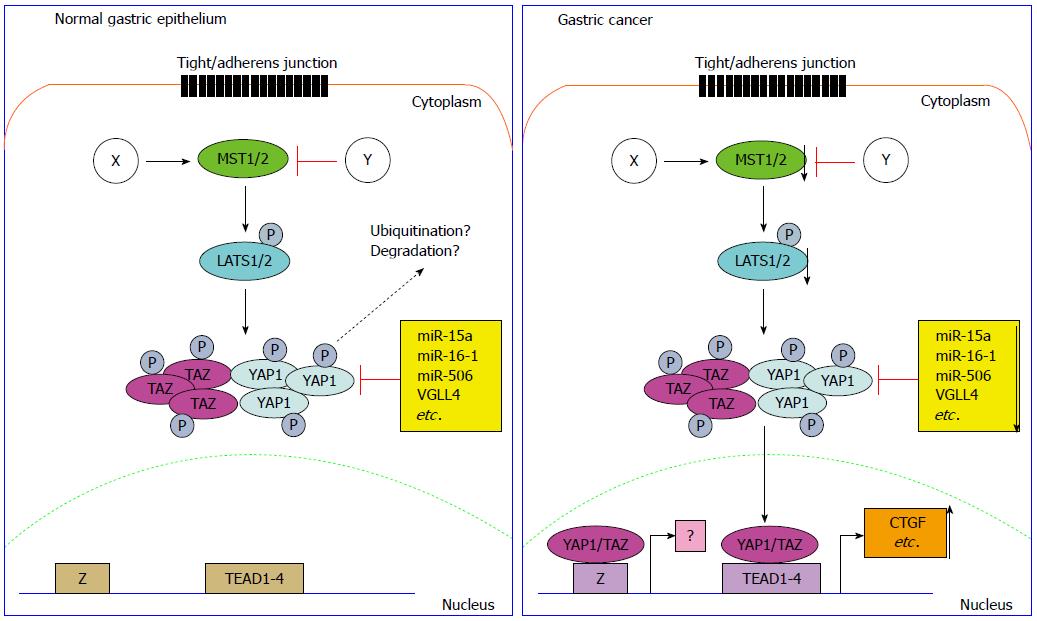Copyright
©The Author(s) 2016.
World J Gastroenterol. Jan 21, 2016; 22(3): 1279-1288
Published online Jan 21, 2016. doi: 10.3748/wjg.v22.i3.1279
Published online Jan 21, 2016. doi: 10.3748/wjg.v22.i3.1279
Figure 1 Deregulation of Hippo pathway in gastric cancer.
The schematic representation of Hippo signaling deregulation in gastric carcinogenesis. In normal gastric epithelium, YAP1/TAZ is strongly negatively regulated and quenched in the cytoplasm by the activated Hippo signaling pathway. miR-15a/16-1/506 also exerts its tumor suppressor function by targeting YAP1. In gastric cancer (GC) cells, the upstream of Hippo pathway, MST1/2 and LATS1/2 are down-regulated and fail to phosphorylate YAP1/TAZ. YAP/TAZ is then translocated to the nucleus and binds with TEAD transcription factors to transcriptionally activate the downstream targets. Meanwhile, downregulation of miR-15a/16-1/506 and VGLL4, an antagonist of YAP1, are partially responsible for the activation of YAP1 in GC. YAP1: Yes-associated protein 1; MST1/2: Mammalian Ste20-like kinase 1 and 2; LATS1/2: Large tumor suppressor 1 and 2.
- Citation: Kang W, Cheng AS, Yu J, To KF. Emerging role of Hippo pathway in gastric and other gastrointestinal cancers. World J Gastroenterol 2016; 22(3): 1279-1288
- URL: https://www.wjgnet.com/1007-9327/full/v22/i3/1279.htm
- DOI: https://dx.doi.org/10.3748/wjg.v22.i3.1279









